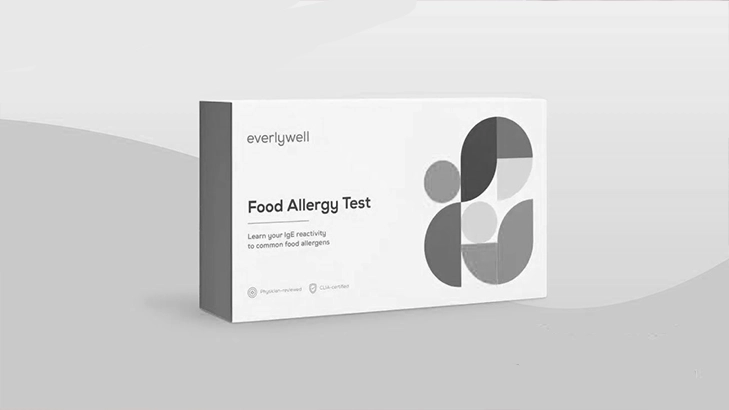At TrustedTablets, we’re committed to providing high-quality supplements to support your wellness journey. One of the most popular natural remedies for prostate health is saw palmetto, often marketed as a treatment for an enlarged prostate, or benign prostatic hyperplasia (BPH). Inspired by Harvard Health’s expert insights, this guide explores the evidence behind saw palmetto, its potential benefits, and how TrustedTablets can help you make informed choices for your prostate health.
What Is Saw Palmetto?
Saw palmetto (Serenoa repens) is a dietary supplement derived from the berries of the American dwarf palm tree, native to the southeastern United States. Historically used as a folk remedy for urinary and reproductive issues, saw palmetto has gained widespread popularity, with over one-third of U.S. adults who take supplements choosing it for prostate health. It’s believed to have anti-inflammatory properties and may mimic the effects of medications like finasteride (Proscar), a 5-alpha reductase inhibitor used to treat BPH.
BPH is a common condition in men over 50, causing symptoms like frequent urination, difficulty starting or maintaining urination, and waking up at night to urinate (nocturia). While saw palmetto is a top-selling supplement for these symptoms, Harvard Health experts urge caution about its effectiveness.
The Evidence on Saw Palmetto for BPH
Despite its popularity, the scientific evidence supporting saw palmetto for BPH is mixed and largely inconclusive. Here’s what the research shows, according to Harvard Health:
- Limited Benefits: High-quality studies, including a 2011 trial published in The Journal of the American Medical Association, found that saw palmetto (even at high doses up to 960 mg daily) was no more effective than a placebo in relieving BPH symptoms like urinary frequency or weak urine flow. A 2006 study echoed these findings.
- Cochrane Review: A 2024 review of 27 placebo-controlled studies involving 4,656 men showed no improvement in urinary symptoms or quality of life from saw palmetto, whether taken alone or with other supplements, over periods up to 17 months.
- Flawed Studies: Some smaller studies, often funded by supplement companies, suggest saw palmetto may reduce symptoms or mimic the effects of BPH medications. However, these studies are criticized for short durations, lack of placebo controls, and bias.
- Potential Mechanisms: Saw palmetto may reduce inflammation or inhibit the conversion of testosterone to dihydrotestosterone (DHT), a hormone linked to prostate growth. However, it does not consistently shrink the prostate or improve symptoms in well-conducted trials.
Dr. Heidi Rayala, an assistant professor of urology at Harvard Medical School, notes, “Saw palmetto is unlikely to harm you, but it probably won’t provide any major benefits either.” Dr. Michael Barry, who led a key study, emphasizes consulting a doctor to rule out serious conditions like prostate or bladder cancer before trying saw palmetto.
Safety and Precautions
Saw palmetto is generally well-tolerated, with mild and infrequent side effects such as:
- Digestive upset
- Headache
- Dizziness
- Decreased libido (rare)
However, there are important precautions to consider:
- Blood Clotting Risks: Saw palmetto may interfere with blood clotting, posing risks for men taking blood thinners like aspirin or warfarin.
- Drug Interactions: It may interact with medications like finasteride or hormonal treatments and could reduce the effectiveness of oral contraceptives.
- Not for Women or Children: Saw palmetto is not recommended for pregnant or breastfeeding women, or those at risk for hormone-related cancers, due to its hormonal effects.
- No FDA Approval: In the U.S., saw palmetto is not approved as a treatment for BPH, and supplements are not regulated like prescription drugs.
At TrustedTablets, we recommend consulting your healthcare provider before starting saw palmetto, especially if you take medications or have underlying health conditions.
TrustedTablets’ Approach to Prostate Health
While saw palmetto may not be the miracle cure for BPH, TrustedTablets offers a range of evidence-based solutions to support prostate health and overall wellness. Here’s how we can help:
1. High-Quality Saw Palmetto Supplements
We carry third-party-tested saw palmetto supplements in various forms, including capsules, liquid extracts, and blends with other nutrients like beta-sitosterol. Our products are sourced from reputable manufacturers and clearly labeled with dosage information (typically 320 mg daily, split into two doses).
- Why Choose Ours? Our supplements meet strict quality standards, ensuring purity and potency. Look for products with standardized extracts for consistency.
2. Alternative Prostate Health Supplements
For those seeking alternatives, TrustedTablets offers:
- Beta-Sitosterol: A plant sterol shown to improve urinary flow in some studies, though it doesn’t shrink the prostate. A 2020 study found beta-sitosterol-enriched saw palmetto oil improved BPH symptoms.
- Zinc and Selenium: These minerals support prostate function, with zinc being particularly concentrated in prostate tissue.
- Omega-3 Fatty Acids: Anti-inflammatory properties may support overall prostate health.
3. Professional Guidance
Our team connects you with pharmacists and dietitians to:
- Review your medications for potential interactions with saw palmetto or other supplements.
- Recommend lifestyle changes, such as reducing caffeine, staying active, and practicing double voiding to manage BPH symptoms.
- Guide you toward medical treatments like alpha-blockers (e.g., tamsulosin) or 5-alpha reductase inhibitors (e.g., finasteride) if natural remedies fall short.
4. Comprehensive Prostate Health Resources
TrustedTablets provides educational tools to empower you:
- Symptom Tracking: Keep a diary of urinary symptoms to share with your doctor for accurate diagnosis.
- Dietary Support: Follow a plant-based diet like the Mediterranean or DASH diet, rich in fruits, vegetables, and whole grains, to support prostate health.
- Screening Advice: Regular prostate-specific antigen (PSA) tests and checkups to monitor prostate health. Saw palmetto does not affect PSA levels, ensuring accurate screenings.
When to See a Doctor
Harvard Health advises seeking medical attention if you experience:
- Difficulty urinating or painful urination
- Blood in urine
- Persistent or worsening urinary symptoms
- Symptoms suggesting prostate cancer, such as weight loss or pelvic pain
A doctor can perform tests like a PSA test, digital rectal exam, or uroflowmetry to rule out serious conditions and recommend proven treatments, including medications or minimally invasive procedures.
Why Shop at TrustedTablets?
TrustedTablets is your partner in making informed health decisions. Our saw palmetto supplements and prostate health products are:
- Third-Party Tested: Ensuring safety, purity, and accurate labeling.
- Carefully Curated: Selected based on the latest research and expert recommendations.
- Backed by Support: Our pharmacists and dietitians are available to answer questions and provide personalized advice.
- Affordable and Accessible: Competitive pricing and convenient online ordering with nationwide delivery.
While saw palmetto may not be the most effective solution for BPH, TrustedTablets offers a range of options to support your prostate health, from supplements to lifestyle resources. Explore our collection today and take the first step toward better wellness.
Disclaimer: Saw palmetto is not FDA-approved for treating BPH or any medical condition. Always consult a healthcare provider before starting supplements, especially if you take medications or have health concerns. Seek medical advice for persistent or severe urinary symptoms to rule out serious conditions like prostate cancer.



